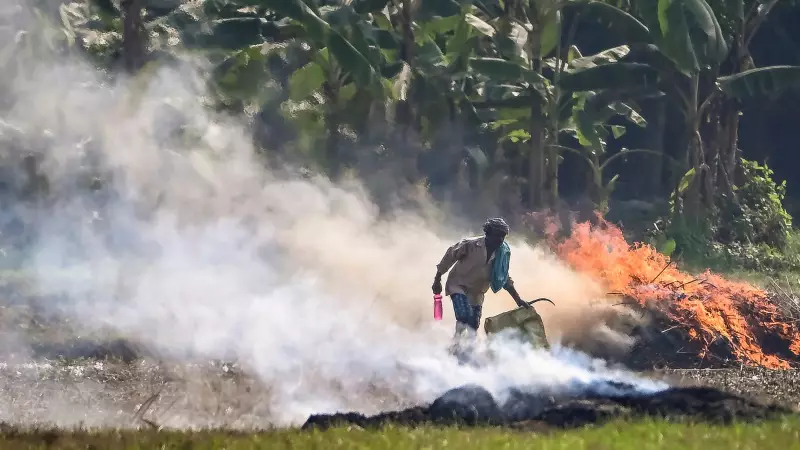
Haryana's Air Quality Crisis Deepens as Authorities Take Action
The Commission for Air Quality Management (CAQM) has taken serious action against the Fatehabad Deputy Commissioner in Haryana for failing to control the rampant stubble burning in the district. This development comes as the state grapples with dangerously high air pollution levels that have pushed the Air Quality Index into the severe category across multiple cities.
Legal Notice Served Amid Rising Pollution
The CAQM has officially served a notice to the Fatehabad District Deputy Commissioner, demanding an explanation for the apparent failure to enforce the ban on paddy stubble burning. According to official data, 59 incidents of stubble burning were reported in Fatehabad between September 15 and November 6, 2025, despite clear directives to eliminate this practice.
The commission highlighted that this represents a major compliance lapse, particularly given the sharp increase in fire incidents during early November. The Deputy Commissioner has been given until November 17 to provide a satisfactory explanation or face legal consequences under the Air Quality Management Act.
Severe Penalties for Non-Compliance
The potential consequences for the Deputy Commissioner are substantial. If negligence is established, the offense carries severe punishment including imprisonment for up to five years, a fine of up to Rs 1 crore, or both. This strict legal framework underscores the seriousness with which authorities are treating the air quality crisis.
The CAQM noted that despite state-level meetings held on September 26 to address the issue, Haryana recorded 206 farm fires between September 15 and November 6. Even after a subsequent meeting on November 7, the problem persisted with 28 farm fires recorded in Fatehabad alone.
Alarming AQI Levels Across Haryana
The air quality situation in Haryana has reached critical levels. On Wednesday morning, Fatehabad recorded an AQI of 478 at 7 am, according to aqi.in. To put this in perspective, breathing this air is equivalent to smoking 12 cigarettes a day.
The situation was even more dire in Gurgaon, where the AQI climbed to 580 at 9 am from 570 at 7 am. Chandigarh experienced relatively cleaner air with the 7 am AQI reaching 290 and gradually improving throughout the day. The overall AQI for Haryana stood at 469 at 7 am, indicating widespread severe pollution across the state.
This environmental crisis highlights the urgent need for effective implementation of pollution control measures and stricter enforcement of existing regulations to protect public health.





